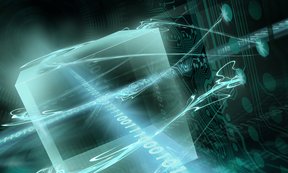Every year, the AAAS-journal PNAS honors the best scientific work published in the journal in the year before. The selection of the particularly original and excellent works is made by the editorial board. This year, it selected six papers from the 3,200 articles published, including in the category of physics and mathematics the contribution of Austrian physicists on the use of machine learning to autonomously develop experiments for quantum research. The physicists used a model for artificial intelligence (Projective Simulation) developed by Hans Briegel's group at the University of Innsbruck, which enables a machine to learn and exhibit simple forms of creative behavior. The memory of this autonomous machine stores many individual fragments of experience, which are networked together. The machine builds up and adapts its memories while learning from both successful and unsuccessful experience. At the same time, it can project new scenarios and test them. In the specific study, the researchers had the artificial agent perform tens of thousands of experiments on a virtual laboratory bench. An analysis of the results showed that the machine's memory had developed certain structures that were frequently used in successful experiments. Some of these structures were already known to physicists as useful tools in modern quantum optical laboratories. Others were completely new and could be used in the laboratory in the future.

A machine that autonomously develops experiments for quantum research.
PNAS Prize for quantum machine learning
A joint research project of physicists led by Hans Briegel and Anton Zeilinger was awarded the 2018 Cozzarelli Prize of the Proceedings of the National Academy of Sciences of the United States of America (PNAS). In their work, the Austrian researchers present an adaptive computer program that can autonomously design quantum experiments.
